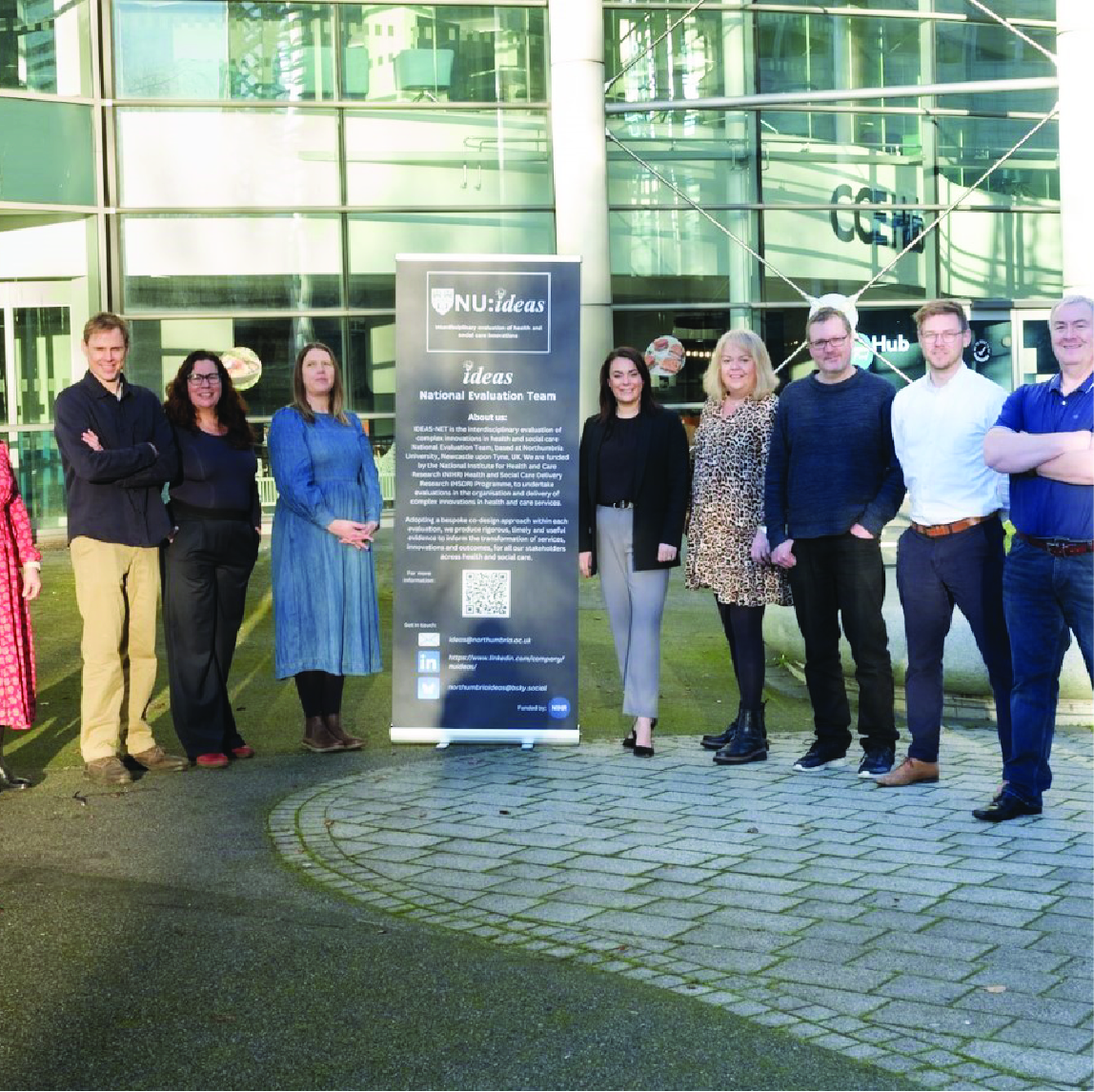-
Study
-
Quick Links
- Course Search
- Unlock Your Potential
- Still time to Apply
- Higher and Degree Apprenticeships
- Continuing Professional Development
- Still time to apply
-
Undergraduate
- Course Search
- Application Guides
- UCAS Exhibitions
- Foundation Years
- Fees and Funding
- School & College Outreach
- Information for Parents
-
Postgraduate
- Course Search
- Application Guide
- Postgraduate Research Degrees
- Flexible Learning
- Fees and Funding
- Change Direction
- Register your Interest
-
Student Life
- Students' Union
- The Hub - Student Blog
- Accommodation
- Northumbria Sport
- Support for Students
-
Experience Northumbria
- Open Days & Events
- Virtual Tours
- Campus Tours
- Life in Newcastle
-
-
International
International
Northumbria’s global footprint touches every continent across the world, through our global partnerships across 17 institutions in 10 countries, to our 277,000 strong alumni community and 150 recruitment partners – we prepare our students for the challenges of tomorrow. Discover more about how to join Northumbria’s global family or our partnerships.
View our Global Footprint-
Quick Links
- Course Search
- Undergraduate Study
- Postgraduate Study
- Information for Parents
- London Campus
- Northumbria Pathway
- Sign up for Information
-
International Students
- Information for Students
- International Events
- Application Guide
- Entry Requirements and Education Country Agents
- Global Offices
- English Requirements
- English Language Centre
- International student support
-
International Fees and Funding
- International Undergraduate Fees
- International Undergraduate Funding
- International Masters Fees
- International Masters Funding
- International Postgraduate Research Fees
- International Postgraduate Research Funding
-
International Partners
- Agent and Representative Network
- Global Partnerships
- Global Community
-
International Mobility
- Information for Northumbria Students
- Information for Incoming Exchange Students
-
-
Business
Business
The world is changing faster than ever before. The future is there to be won by organisations who find ways to turn today's possibilities into tomorrows competitive edge. In a connected world, collaboration can be the key to success.
More on our Business Services -
Research
Research
Northumbria is a research-rich, business-focused, professional university with a global reputation for academic quality. We conduct ground-breaking research that is responsive to the science & technology, health & well being, economic and social and arts & cultural needs for the communities
Discover more about our Research -
About Us
-
About Northumbria
- Our Strategy
- Our Staff
- Place and Partnerships
- Leadership & Governance
- Academic Departments
- University Services
- History of Northumbria
- Contact us
- Online Shop
-
-
Alumni
Alumni
Northumbria University is renowned for the calibre of its business-ready graduates. Our alumni network has over 246,000 graduates based in 178 countries worldwide in a range of sectors, our alumni are making a real impact on the world.
Our Alumni - Work For Us
What will I learn on this module?
In this module you will learn how animals and plants interact with their environment, and with each other. How do factors like temperature, drought and the availability of nutrients affect plants and animals? The module will explore these issues. This is important, as the current climate change has an impact on both animals and plants. You will learn how in the course of evolution plants and animals have adapted to different climate conditions. With regards to plants, you will study how they have adapted not only their morphology, but also their photosynthesis to survive in a range of habitats. You will learn how animals have adapted their morphology, physiology and biochemistry to respond to variations in different environmental parameters and survive and function in various habitats, including extreme habitats such as the deep sea hydrothermal vents and very dry deserts. The interaction between plants and animals will also be studied.
How will I learn on this module?
You will learn through lectures, workshops and practicals. The lectures will provide you with the theoretical background knowledge on the topics under study. In the lectures, you will be encouraged to engage as much as possible. In several lectures and in workshops you will be presented with research papers from which you will have to extract and analyse data. This will give you insight to recent research findings, and it will train you in accessing and analysing data in scientific publications. It is a challenging, but good way to familiarise yourself with scientific communication at professional level. The practicals will not only illustrate the material presented in lectures, but also allow you to develop your practical skills in the field of biology.
How will I be supported academically on this module?
A module guide with detailed information on the content of the module, the time table, the different assessments and dates of submission and feedback will be made available via Blackboard. All lecture information plus extra information and problem solving exercises will be present on Blackboard. The module is attached to an electronic reading list which allows you easy access to relevant, directed reading, videos and other forms of information. During the teaching sessions, you will be supported in various ways. In the lectures, we encourage interaction as much as possible. You will be involved in discussions and problem solving exercises. This allows you to make optimum use of the lectures. In lectures and workshops you will engage in scientific exercises and workbooks. You will be able to get formative feedback on your performance, which gives you the opportunity analyse your theoretical knowledge and your skills in applying this knowledge, and where necessary to improve.
Northumbria lecturers are accessible outside teaching hours as well; there are opportunities each week to sign up for a private meeting with your lecturer.
What will I be expected to read on this module?
All modules at Northumbria include a range of reading materials that students are expected to engage with. Online reading lists (provided after enrolment) give you access to your reading material for your modules. The Library works in partnership with your module tutors to ensure you have access to the material that you need.
What will I be expected to achieve?
1. Describe and discuss the variety of adaptations to different external environments, including evolutionary adaptations to extreme environments in plants and animals.
2. Understand and discuss the relation between flowers and insects, and discuss and evaluate the challenges for both partners in our changing agricultural and urban habitats.
Intellectual / Professional skills & abilities:
3. Access and analyse data from scientific peer-reviewed publications and interpret and communicate these data in a scientific manner.
4. Carry out experimental work in the laboratory in a safe and responsible manner, observing the COSHH regulations and record, analyse and present the data in the format of a scientific report.
Personal Values Attributes (Global / Cultural awareness, Ethics, Curiosity) (PVA):
5. Evaluate and interpret data on the effects of global warming, and discuss both the dangers to, and the opportunities of safeguarding our wildlife and domesticated plants and animals.
How will I be assessed?
You will be assessed by coursework. There are two assignments in this module:
• Animal environmental biology – 50% of module mark. This assignment consists of a scientific report in the IMRAD format, based on data collected during laboratory experiments and additional data discussed during workshops. (MLO 1, 2; 3, 4 and 5 – for animals)
• Plant environmental biology – 50% of module mark. This assignment consists of a workbook with questions and problems based on peer-reviewed papers on the topics we have been studying in lectures, practicals and workshops. (MLO 1, 2; 3, 4; and 5 – for plants and plant-animal interactions)
Informal feedback will be given during workshops, practicals and in-session activities.
Your marked work with written feedback will be returned to you via Blackboard.
Pre-requisite(s)
AP0412 - Animal and Plant Biology
Co-requisite(s)
None
Module abstract
Plants and animals have colonised nearly every habitat on planet earth, and live and thrive in a wide range of conditions. How do they manage? How have plants and animals been able to adapt to climatic conditions in both the frozen arctic, and in hot and arid tropical deserts? In this module we will explore some of the adaptations that allow species to be successful in their own habitat. Insight and knowledge in these adaptations is important: we live in a changing world where climate change puts pressures not only on wild species, but also on the domesticated plants and animals upon which we rely for our survival.
Course info
UCAS Code C100
Credits 20
Level of Study Undergraduate
Mode of Study 3 years Full Time or 4 years with a placement (sandwich)/study abroad
Department Applied Sciences
Location City Campus, Northumbria University
City Newcastle
Start September 2025 or September 2026
All information is accurate at the time of sharing.
Full time Courses are primarily delivered via on-campus face to face learning but could include elements of online learning. Most courses run as planned and as promoted on our website and via our marketing materials, but if there are any substantial changes (as determined by the Competition and Markets Authority) to a course or there is the potential that course may be withdrawn, we will notify all affected applicants as soon as possible with advice and guidance regarding their options. It is also important to be aware that optional modules listed on course pages may be subject to change depending on uptake numbers each year.
Contact time is subject to increase or decrease in line with possible restrictions imposed by the government or the University in the interest of maintaining the health and safety and wellbeing of students, staff, and visitors if this is deemed necessary in future.
Useful Links
Find out about our distinctive approach at
www.northumbria.ac.uk/exp
Admissions Terms and Conditions
northumbria.ac.uk/terms
Fees and Funding
northumbria.ac.uk/fees
Admissions Policy
northumbria.ac.uk/adpolicy
Admissions Complaints Policy
northumbria.ac.uk/complaints









